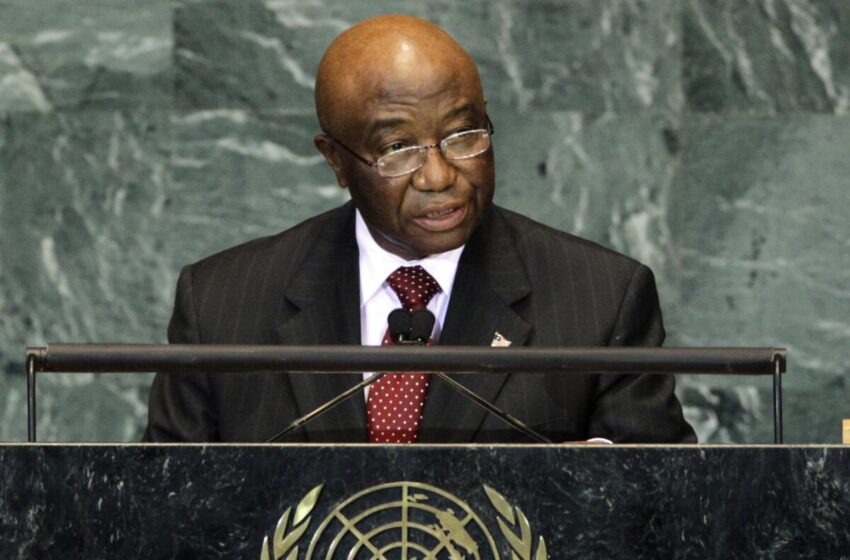Liberian President’s English fluency stuns Trump: Why was Trump shocked?

Liberian President, Joseph Boakai
During a recent public interaction, former U.S. President Donald Trump stunned many by asking Liberian President Joseph Boakai, “Where did you learn to speak English so well?” The remark, though delivered with apparent curiosity, quickly ignited controversy and drew criticism for being tone-deaf and uninformed. Trump’s surprise over Boakai’s fluency in English,Liberia’s official language, highlighted a common misunderstanding of African nations, their histories, and linguistic backgrounds.
President Boakai, a seasoned politician and statesman, calmly continued the discussion, earning praise for his composure. However, the comment spurred a global debate about the perception of African leaders and the level of awareness world leaders show when engaging with them on the international stage.
Why Trump’s Question Was Problematic
Trump’s comment became controversial not only for its tone but also because it revealed a lack of historical awareness. Liberia was founded in the early 19th century by freed African-American slaves repatriated from the United States. The country modeled its constitution and governance system on that of the U.S., and English has been its official language since inception. Asking its president how he speaks English so well ignored this historical context entirely.
Critics on social media and in diplomatic circles pointed out that the question reinforced harmful stereotypes about Africa as a monolithic or underdeveloped continent, rather than a region rich in diversity, education, and history. Many Liberians, particularly educated ones like Boakai, are native English speakers. The comment, to some, echoed colonial-era assumptions about African inferiority in global affairs.
Liberia’s Historic Ties to the United States
Liberia holds a unique position among African nations due to its deep-rooted historical connection with the United States. Founded in 1822 by freed American slaves through the American Colonization Society, the West African nation was seen as a land of liberty and shared values. Its capital city, Monrovia, was named after U.S. President James Monroe, and its flag closely resembles the American flag.
Given this background, Liberia’s use of English in all official capacities—from government operations to education—is not unusual. President Boakai, like many Liberian leaders before him, has spent decades engaging in local and international politics using English as his primary language. His fluency is therefore expected rather than extraordinary. READ ALSO Nigeria, Ghana…Trump considers visa ban for 25 countries – see full list The evolution of Abdullahi Ganduje: 46 years in Nigerian politics
A Teachable Moment in Global Diplomacy
While Trump’s remark may not have been intended to offend, it underscored the importance of cultural and geopolitical awareness, especially when dealing with world leaders. Many observers have called it a teachable moment, both for the U.S. president and the broader global community, on the importance of understanding other nations’ histories before making public comments.
Some African commentators used the moment to educate audiences on Liberia’s unique origin, urging global leaders to update their mental maps about African countries and their capacities. They emphasized that such incidents reveal how far international diplomacy still has to go in treating African nations as equal, informed, and competent global players.
Boakai’s Calm Response Wins Praise
Liberian President Boakai, 79, handled the moment with professionalism, showing no signs of irritation or offense. His composed response has been widely praised as a reflection of diplomatic maturity. Rather than responding with sarcasm or defensiveness, he stayed on message, showcasing the strength and steadiness that many have come to expect from his administration. His ability to remain focused on policy and partnership, even when faced with uncomfortable moments, may be one reason Liberia continues to enjoy growing respect on the global stage.
Time for a Global Shift in Perception
Trump’s comment may have made headlines, but the real story lies in the assumptions that fueled it. The idea that an African president speaking fluent English is unusual points to the persistent lack of knowledge about Africa’s history, education systems, and global engagement. As Liberia continues to build its international relationships, moments like these offer a chance for the world to look beyond outdated narratives and recognize African leaders for their capabilities, not their accents.

